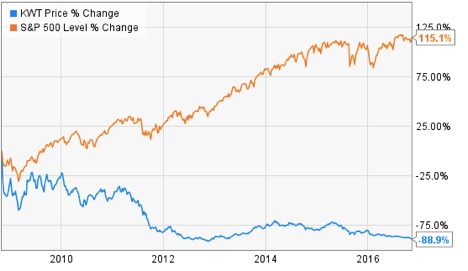There are 4 days left until Christmas. You’ve been meaning to shop for your niece but keep ending up buying scarves and gadgets for yourself. Not to worry, there’s still time. You can order the Shimmer and Shine Magical Light-Up Genie Play Set by December 22nd on Amazon Prime and have it shipped to your door by Christmas Eve. However, if your niece, nephew, son, daughter, or grandchild is anything like my children, the joy of a new toy will wear off quick. By mid-January, Shimmer’s palace will look more like a foreclosed apartment and Shine’s teacup will be buried with last year’s Lego set.
This year, why not do something that will last a little longer? Give them a gift they will not care about one single bit. You’ll probably lose your “World’s Greatest Uncle or Aunt” title. However, when they are off to college, starting a family, or looking to buy a home — you will be adored. What is this magical gift?
An iPhone X.
Or not. If you are looking to give a gift that will pay dividends a decade from now, try dividend stocks. If you are looking to provide that special child in your life with the opportunity to become empowered, have a stronger of sense of self, meet lifelong friends, and increase their earnings potential, help pay for their college.
Sure, both ideas aren’t as sexy as a new toy or $1,000 cell phone but they won’t end up in a donation bin either. And best of all, there’s still time to stuff their stockings by December 25.
Purchase brand name dividend stocks
While the price tag of the latest iPhone is $999, the true cost of owning the latest hot gadget from Apple is much more. A data plan will set you back about $70 per month. Then there’s app purchases, music subscriptions, and broken screens. In 2 years, it will be time to fork over another $1,000 to upgrade. Let’s say you buy your 12-year-old a new phone and pay for their service until they are 18 (why couldn’t you be my Mom or Dad). During that time, you paid $1,000 per phone, $70 per month on carrier charges and app purchases, and upgraded twice. Your true cost over 6 years is a whopping $8,040 or $1,840 per year.
Now in typical financial junkie form, let’s look at what happens if you buy them Apple shares or better yet, a basket of brand name stocks with that money every year. Using a conservative rate of return of 6%, investing rather than spending will net your loved one nearly $14,000 over six years. Your child will be better off by $22,000 since you’ll be saving over $8,000 in phone payments — enough for the first-year of tuition at UC San Diego with money to spare for flights back home (or for you to go to the beach).
Of course, not everyone is ready to fork over nearly $2,000 a year as a gift for someone else. You can still invest in brands kids love and at much lower price tags. And you can do this by Christmas. By opening a custodian account online for your soon-to-be-rich child, you can be ready to invest in minutes. Many brokers, such as Ally Invest or TD Ameritrade don’t have account minimums. With trading fees as low as $4.95, you don’t need thousands to invest. You can invest as little as $4.95. Of course, that would mean you enjoy throwing money away. A rule of thumb I like to use is not to exceed more than 2% of your trading commissions for any investment. Ally Invest charges a trading commission of $4.95 while TD Ameritrade starts at $6.95. With fees that low, you can get an investment account started for as little as $250.
For $250, instead of a new pair of Jordan’s, you can buy 4 shares of Nike stock. Is your kid a Star Wars fan? Disney, the owner of the franchise, is a great brand that will be around when all of us aren’t. Alternatively, Hasbro, is an incredibly well-run business that licenses Disney characters such as Darth Vader. For $270, you can buy 3 shares of Hasbro and receive a generous 2.5% dividend yield.
The dividend is the gift that keeps on giving. Many online brokers allow you to enroll in a Dividend Reinvestment Program, or DRIP. With DRIP, instead of receiving a payout as cash, dividends are used to automatically purchase more stock. This is a great, hands-off approach to compounding wealth over time.
Many beloved brand names that sell products and services kids love pay dividends and make great long-term investments. Below is a list of how some popular names have performed over the last decade along with their dividend yields.
| Company | 10-year stock return | Dividend yield (TTM) |
| Activision Blizzard (ATVI) | 438% | 0.5% |
| Apple (AAPL) | 114% | 1.4% |
| Hasbro (HAS) | 253% | 2.5% |
| Nike (NKE) | 290% | 1.2% |
| Six Flags Entertainment (SIX) | 347% | 3.9% |
| Starbucks (SBUX) | 244% | 1.8% |
| Walt Disney (DIS) | 240% | 1.5% |
Source: YCharts and Yahoo! Finance
Not only does buying stock in these brands make money, but it is a great strategy to get young children interested in business and investing.
So, go on. Open an account for your niece, nephew, or child today. Just select the UTMA/UGMA account option which gives an adult custody of the account until the child turns at least 18 and up to 25 in California. You can continue to contribute to their account on special occastions such as birthdays, graduation, Bar Mitzvah, and their Quinceanara. You may not win brownie points today. However, ten years from now, you’ll by far be their favorite relative.
Contribute to a 529 plan
Higher education is priceless. It’s an opportunity for the awkward to become legends. Life-long friendships are created. You may even learn to do laundry. It’s priceless — for an average four-year public, in-state cost of $40,000 of course. Expenses can go up significantly from if a child enrolls in a UC or private university.
Given the rapid increase in college tuition, it’s no surprise that many students are leaving college with insurmountable debt levels. Today, there is $1.5 trillion in student debt outstanding. The average monthly student debt payment for those between 20 and 30 years old is $351. When I was going to college, it wasn’t impossible to pay your own way through college. However, students today have a much tougher road than their parents. Even with a full-time job, it’s tough to escape the student loan trap.
However, you can help fix this national catastrophe by doing one small thing — buy your son a Nintendo Switch.
…or you can contribute to their college savings.
A 529 plan is a tax-advantaged savings plan that is designed to help family members put aside money for college. Nearly every state offers a 529 plan and some states offer tax incentives to invest in their own state’s plan. California does not offer a tax deduction but you are able to invest in any state’s plan. In addition to growing tax-free, 529 plans are low-maintenance, give the owner control of the money, offers automatic investment options, and are easy to set-up.
Despite all the benefits of a 529 plan, researching the one that’s right for your child can be quite a task. An ideal plan should have low fees investment options, strong long-term performance, easy-to-select investment options, and a strong team behind the plans. Fortunately, Morningstar has done some of this research for you. From 2011-2017, these funds have consistently ranked as top-tiered 529 plans:
- Rowe Price College Savings Plan, Alaska
- Maryland College Investment Plan
- Vanguard 529 College Savings Plan, Nevada
- CollegeAdvantage 529 Savings Plan, Ohio
- CollegeAmerica Plan, Virginia (Advisor-sold)
- Utah Educational Savings Plan (UESP)
You can’t really go wrong with any of these but my personal favorite is the Utah Educational Savings Plan. It’s where I have both of my children’s college savings invested. Like many plans, the Utah plan allows investors to set it and forget it as investors have four age-based options that get more conservative as the child gets closer to college. UESP also has a solid blend of strong investment performance and low-cost investment options. As an advisor, I favor the Utah plan over others as I can also customize investments for each client. Of course, individual investors can do this on their own too.
The application process to open a 529 plan is simple. You can open an account online in minutes, giving you plenty of time to have it funded by Christmas morning. Your child may not appreciate your generosity today. However, a decade from now, they’ll be singing your praises as they perform their first keg stand.
The holidays are a great time of year for getting together with family and friends. Christmas morning is a memory that will stick with children for the rest of their lives. However, the Grinch would agree with me that memories fade. This year, give the gift that keeps on giving — quality dividend stocks and a contribution to their college savings.
To learn more about custodial accounts, 529 plans, and saving for your child’s future, schedule a complimentary meeting by clicking the icon below.






